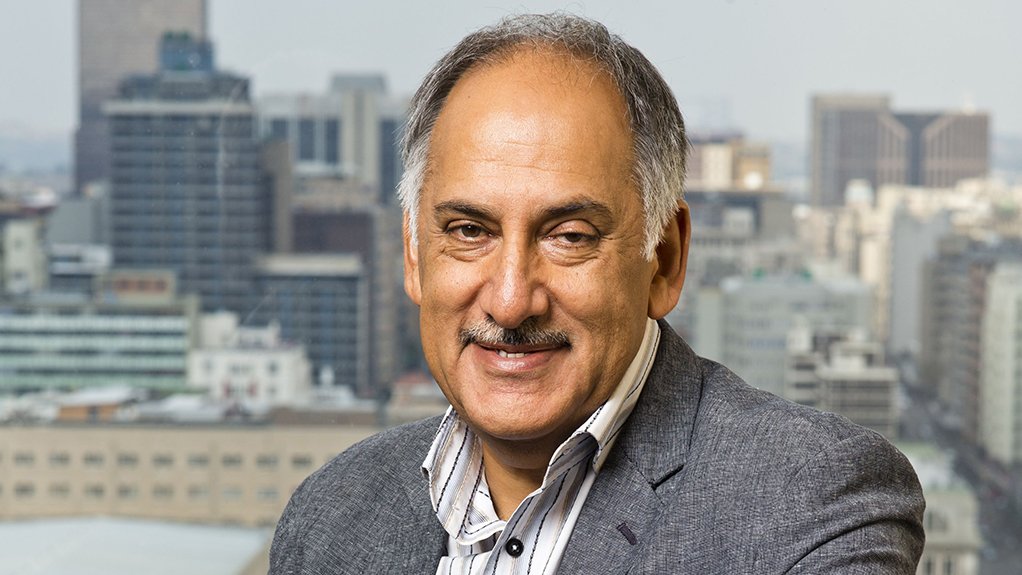Of the three options available to fund a basic income grant (BIG) – cutting expenditure, issuing more debt or raising taxes – raising taxes is the only “theoretically viable option” for South Africa, research done by market research and intelligence firm Intellidex shows.
The research was commissioned by business organisations Business Unity South Africa (Busa) and Business Leadership South Africa (BLSA).
“Cutting other expenditure is simply not a viable political or technocratic option. There are no more funds available and the impacts of widespread top trimming, as seen in the past few years and albeit necessary given a lack of political will or complex decisions being made, has ended up being negative for service delivery, especially at lower levels of government,” says Busa CEO Cas Coovadia.
Further, raising debt may well have been easy in recent years when global and local interest rates were low, but this is no longer the case, he adds.
There are two tax options. The first is organic tax taken from faster growth as an upside to ongoing reforms, which can be directed towards BIG spending.
The social relief of distress grant currently benefiting from the terms-of-trade commodity boon is the most obvious example, but it is unsustainable given the lack of mining investment happening and the inability to boost production volumes given the transport logistics constraints on mining export companies, Coovadia notes.
A rise in growth would expand the tax base and make spending on a BIG sustainable. The sustainability of a BIG in such circumstances is also enhanced because coverage will, in all probability, decline as a result of an increase in employment, the research report shows.
The second option is to try to take more tax from the existing tax base through higher rates or new taxes.
“The issue with tax options is that they can simplistically be hiked continually until they hit the required level of revenue, yet such a strategy is not credible given the negative consequences behaviourally on taxpayers and the economy at large,” Coovadia says.
“Most tax options are simply far too small in their existing size, their potential tax base and also how they or their tax base have behaved dynamically in the last decade. For example, this is true of corporate tax, which has been shrinking because taxable onshore profits of companies have been shrinking.”
Further, with regard to corporate, personal and other taxes, the research finds that there is a small tax base in terms of absolute numbers of firms or individuals paying tax and behavioural changes are all the more acute in tax systems with such characteristics.
Tightening capital controls or preventing tax emigration are simply not viable options, the research indicates.
Tax hikes would need to be broad-based, and as the report shows, would have to be paid by the middle and even lower middle classes to provide some broad sense of sustainability given how narrow the overall tax base is.
Much of the modelling in the research report assesses the possibility of trying to raise an additional R50-billion to R100-billion of revenue. Given the most recent propositions for a BIG are closer to R300-billion, the sheer impossibility of funding this within the current tax base is apparent. This is equally true regardless of what the social wage spending option is.
“A key takeaway from the research is that there is precious little room for any additional spending at all. Therefore, the specific amount that is approved and why it is chosen is exceptionally important.
“This is not to say that the proceeds of reform and future higher potential growth causing the tax base to expand cannot be spent on the social wage, including even a BIG, if that is the political choice. One must be realistic, however, on when such tax base expansion will credibly happen,” Coovadia emphasises.
“The BIG is not an allocation of funds for a few years, but rather a permanent decision that must be carefully considered as, realistically, it cannot be undone once implemented,” he says.
“There is so much at stake when it comes to the BIG and decisions must be based on meticulous research into how it would be funded,” comments BLSA CEO Busi Mavuso.
Further, there is a broader concern with funding based on tax, as BIG is only the first on the social wage front for the fiscus going forward.
“Any choice here on any funding front will simply not be available in future for other social wage policy choices, such as National Health Insurance and comprehensive social security reform,” says Coovadia.
Additionally, President Cyril Ramaphosa has expressed a desire for more spending on the jobs programme, which must be considered. All this could amount to an additional R500-billion a year, he adds.
EMAIL THIS ARTICLE SAVE THIS ARTICLE ARTICLE ENQUIRY
To subscribe email subscriptions@creamermedia.co.za or click here
To advertise email advertising@creamermedia.co.za or click here











